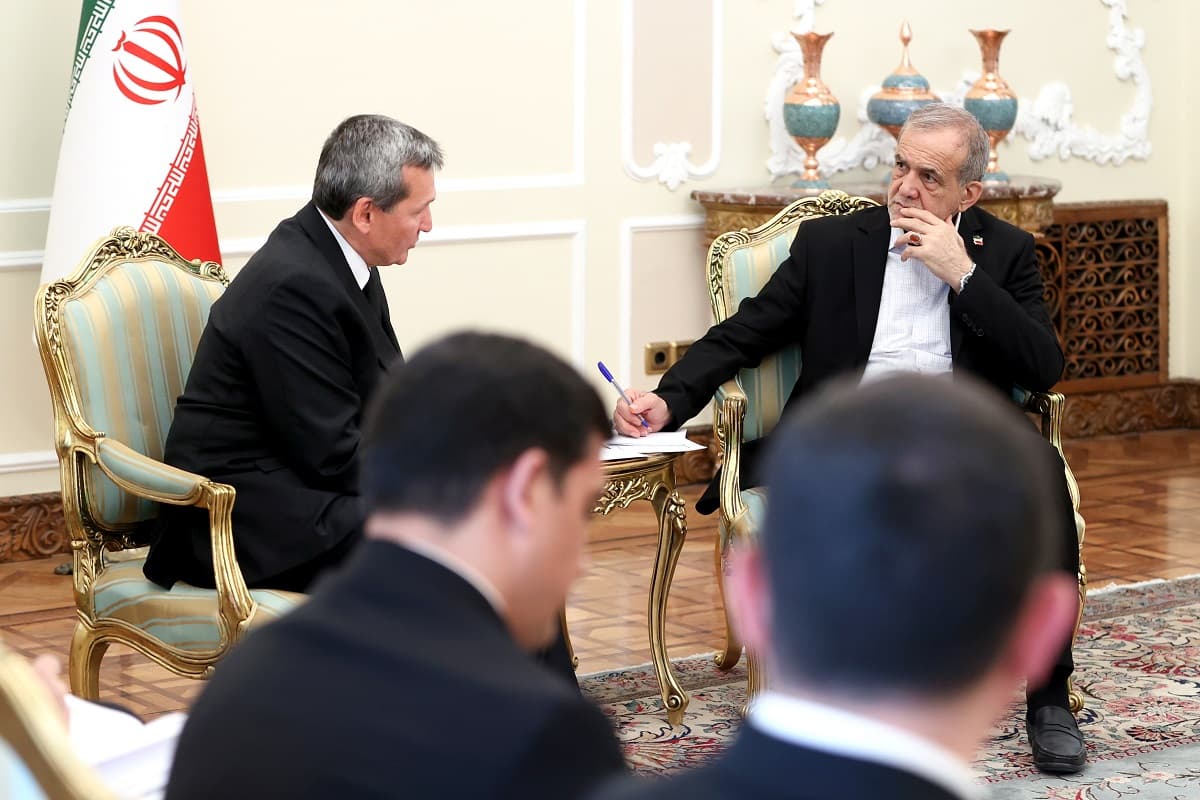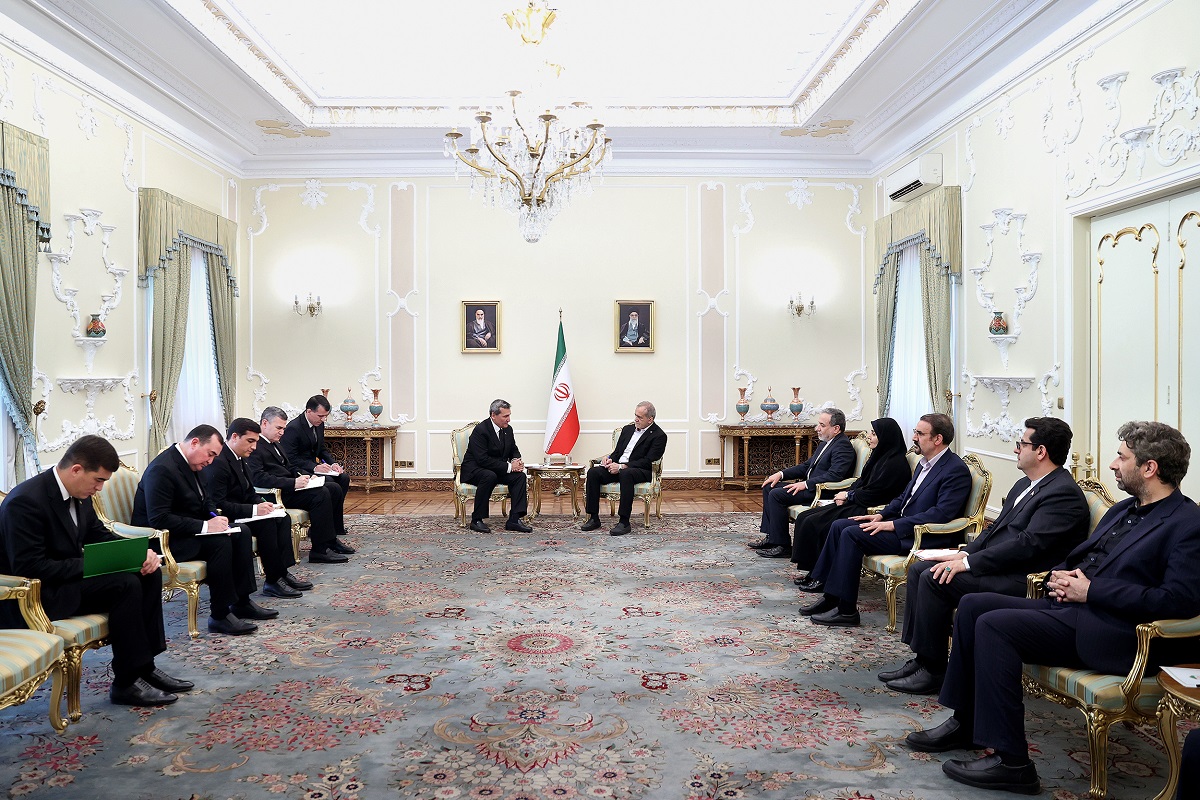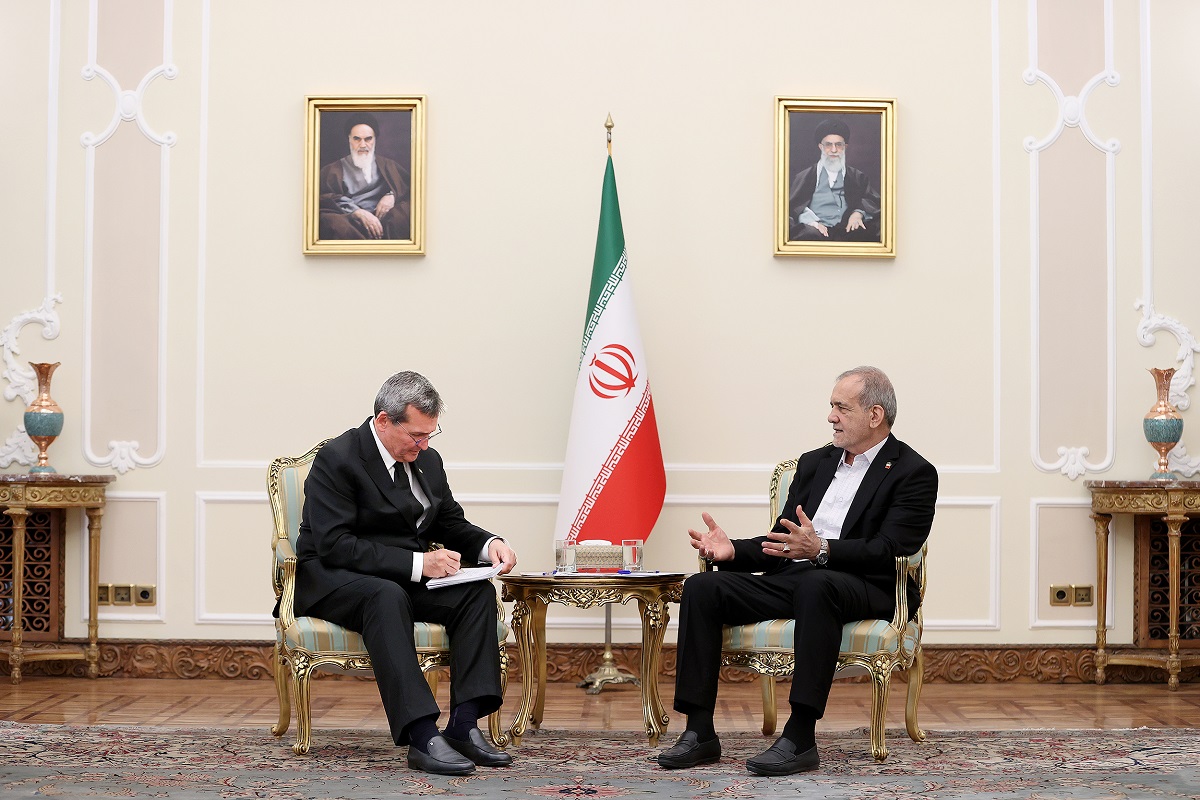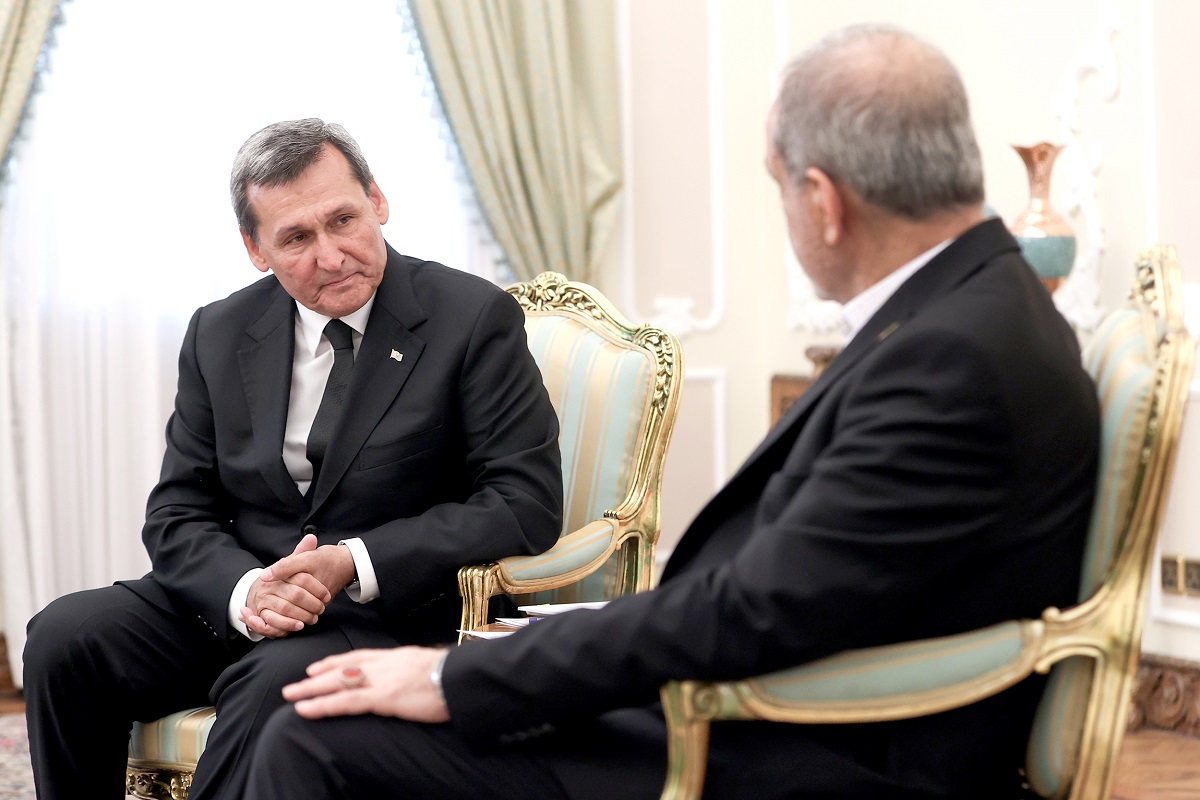
On May 20, Turkmenistan's Foreign Minister Rashid Meredov met with President of the Islamic Republic of Iran Masoud Pezeshkian. During the meeting, current issues of bilateral cooperation, prospects for further expansion of cooperation in the political, diplomatic, trade, economic, transport, energy, investment, cultural and environmental spheres were discussed.
The Iranian President stressed that strengthening cooperation, including the implementation of joint investment projects, meets the interests of the two friendly nations and helps ensure their future well-being, stability and security.

The parties particularly noted the high level of interaction in the field of transport and transit, as well as the importance of intensifying cooperation within the framework of international and regional initiatives. In this context, it was said that an international conference will be held in December of this year, convened on the initiative of the National Leader of the Turkmen people, according to a press release from the Turkmen Foreign Ministry.
Pezeshkian stressed Iran’s interest in importing gas from Turkmenistan, as well as exporting and exchanging gas with neighboring countries. He called for the design and implementation of an Iran-Turkmenistan gas pipeline that could serve all three purposes, according to the Iranian President’s website.

Masoud Pezeshkian said that the Islamic Republic is keen to expand cooperation with Turkmenistan in various sectors, including economy, culture, investment, transportation and transit.
Pezeshkian also expressed gratitude to the Turkmen government for hosting the upcoming Caspian Summit in Ashgabat, noting that the Caspian Sea is a valuable asset for all littoral states.

Minister Meredov, who is visiting Tehran to attend the 18th meeting of the joint commission on economic cooperation, briefed on his meetings with Iranian authorities during this trip. The key topics of discussion during these consultations were the construction of a gas pipeline to Iran for domestic consumption, export and swaps, as well as the expansion of border trade, the development of border markets, trade and economic cooperation, joint investments and efforts to preserve and improve the ecological state of the Caspian Sea.
ORIENT